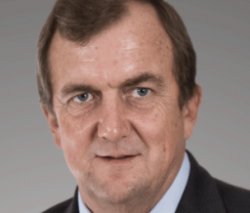
The foot-shooting ability of misguided political leaders is well known. But proposed legislation by investment-desperate DRC to raise mining taxes sets a breathtaking new standard. Days after neighbouring Zambia was forced to roll back its tax increase proposals (following similar backtracking Cote d’Ivoire and Mali) new mining taxes proposed by the worthies running the DRC were leaked. Estcourt-raised Mark Bristow, CEO of Africa-focused gold miner Randgold Resources, jumped on a plane to Kinshasa to lobby for a re-assessment. Bristow is confident sanity will prevail. Perhaps. But even if they retract the proposals, DRC’s politicians have delivered an unnecessary jolt to investor confidence at a time when they can least afford it. – Alec Hogg
By Mamidipudi Soumithri
April 17 (Reuters) – Any increase by the Democratic Republic of Congo in the taxes it levies on mining will stifle new investment in the mineral-rich African country, gold miner Randgold Resources Ltd’s chief executive said.
Congo’s draft mining code – which proposes to raise corporate taxes to 35 percent from 30 percent and introduce a new 50 percent windfall tax – is an effort by the government to boost revenue from an industry that has been the main driver of GDP growth.
“All those (proposals) really hurt, to a point where a standard gold mine doesn’t make a return for the investors so no one will invest,” CEO Mark Bristow told Reuters by phone, while on his way to Congo to lobby the government to roll back the proposal.
Randgold operates the $2.5-billion Kibali gold mine in the central African country. Bristow said Kibali would never have been developed under the current proposal.
Bristow said the Kibali mine, and other existing mines in the country, were protected by a 10-year stability clause, which means they would not have to pay the new taxes for 10 years after such proposals were passed into law. It is only new mining ventures that would be hit by these new rules.
Congo holds the world’s largest cobalt reserves and a significant amount of diamonds, gold and copper. But it is among the most difficult places in the world to invest in, ranking 184 out of 187 in a World Bank list that measures the ease of doing business in countries.
Mining companies say that Congo’s regulatory environment must be particularly attractive to draw investors, given the country’s poor infrastructure and political instability.
The Kibali mine is among the biggest in Congo. Randgold and AngloGold Ashanti Ltd own 45 percent each in Kibali, with state miner Sokimo holding the rest.
Mining giants Freeport-McMoRan Inc and Glencore Plc also have large copper investments in the country, which is one of Africa’s largest producers of the metal. Neither company could be immediately reached for comment.
Bristow was confident that the Congolese government would roll back its proposals, much like Mali and Cote d’Ivoire have.
A host of African nations including Zambia, Ghana, Mali, and Cote d’Ivoire have in the past few years attempted to boost revenues from the mining sector by imposing higher taxes, only to later roll back such proposals.

